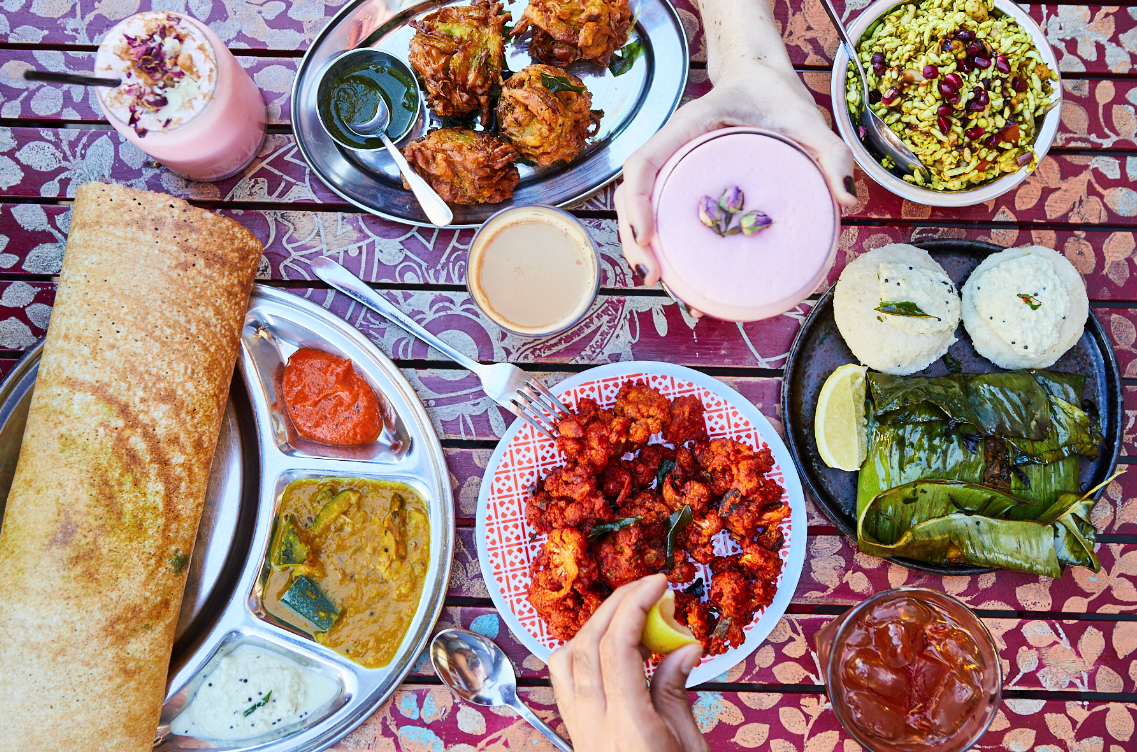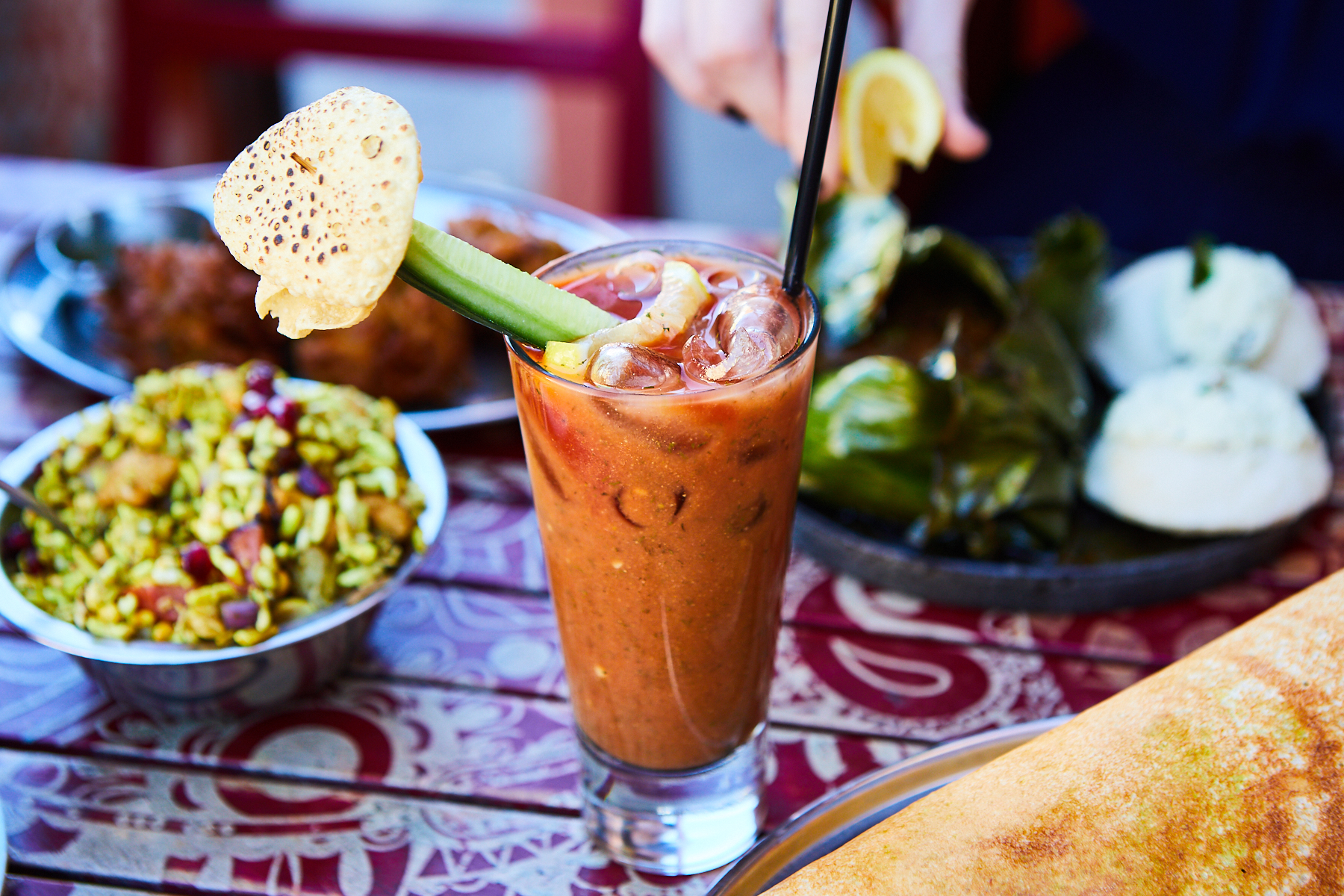And that’s cool. But the great ones, they’ll switch gears. It’s more than just an Aloo baingain or Dosa, it’s a story. And at Mukka, it’s a rich one, made up of countless meticulous details spun together into one tasty yarn. And Prateek Dhawan, who co-founded Mukka alongside his brother Adiyah, says they hold no reservations about bringing authenticity to the Indian restaurant.
“The story we want to give is real Indian food, based on concrete flavours. We don’t want to be something else,” Dhawan says. “We’re not trying to be fusion. We’re trying to bring different dishes from India that are popular in India, things that are eaten at get-togethers and special occasions. We want to bring Indian flavours, but not to a fixed box. The whole thing isn’t limited to a pre-made template.”
And it’s an unashamed approach that sees all aspects of Mukka, from the cocktails to the décor sing in harmony. Most flourishes, like etchings in the table of the mandala flower done by the brother’s father, or the bar that was built by them with the help of their friend, have a personal, rustic touch.
“We just wanted to be us. We just wanted to bring our own culture and style to the restaurant. And in the end we just ended up giving a more modern and creative look to it,” Dhawan says.
“And that’s what we felt like, everything we thought about and brought our own perspective too. So we were like for example, ‘what are common Indian colours? Okay, turquoise, orange and white – okay that looks cool, so that’s our colour combination.”
Mukka’s early days were modest, a nightly food stall at the Victoria Markets. It’s a place where the pair cut their teeth. Their blend of down to earth, quality Indian cuisine with a fresh approach quickly caught traction.
“With food stalls, as a customer generally you go to the night market once, and then that’s it, that’s it for the season,” Dhawan explains. “And what we found really interesting was that people were actually coming back for our stall at the market. And we were like: ‘okay, that seems really cool.’ And that’s the moment where we found that this idea we had was actually making some sense, so we were like ‘alright, then let’s give this a try’.”
They seized the opportunity to address a glaring chasm in Melbourne’s foodie culture at the time, of not giving Indian cuisine the credit it deserved. “If you wanted to search for quality Indian, it was such a big struggle,” Dhawan says. “We were like, ‘oh let’s do something special, a celebration you know, where do we go?’ There weren’t many places in Melbourne. At the time they were more focused on cheap take-away style stuff, and we were like, ‘well that’s not really giving a great impression of Indian food.’
“There was so much Indian cuisine that was still unexplored. We didn’t want to go fusion, we didn’t plan on it. We wanted to just bring quality Indian food that you might find at a house party in India.”
Dhawan says that there are still plenty of misconceptions about Indian food. Example: it’s not all spicy curries. “When we moved to Australia, we were really surprised that people called Indian food mostly curry. And we were like, ‘what is a curry?’ For example, if you go for an Aloo Baingan, which is a potato and eggplant dish, it’s not really a gravy curry like dish. It’s dry. And it’s a very common at-home sort of dish.”
But perhaps the most endearing part of Indian food, is its communal approach to eating. “Sharing is key, it’s a community thing, you eat together,” Dhawan explains. “Dosas take this to the next level, as you’re eating from the same plate. But, if you go for any curries they’re all mostly made for sharing.”

